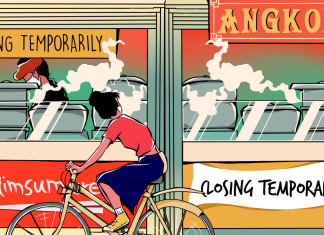I WAS raised in Pampanga. It saddens me that although much efforts have been made to strengthen our cultural identity, the language still faces threats of extinction.
In her opinion piece published in the Philippine Star, Sara Soliven de Guzman said 10 years after being declared by experts as a “dying language,” the Kapampangan language continues to weaken.
“The conscious and unconscious decision of families in not passing on their language and culture is considered the biggest threat to Philippine languages,” De Guzman wrote. “These families opted to have their children learn and become fluent in the national language to have a better place in society. In the process these children lose their identity.”
This reminded me of the frustrations I had while growing up.
Born in Arayat, Pampanga, I was made familiar to Kapampangan folk songs such as the famous “Atin Cu Pung Singsing (I Have a Ring)” at a very young age.
Every December 9, we celebrate “Aldo Ning Capampangan” (Pampanga Day), which coincides with the Sinukwan Festival. Sinukwan is a deity, equivalent to a bathala, who is believed to be residing on the mountain of Arayat.
In elementary, after our daily morning prayers, one of our language teachers would speak over the school audio system to recite unfamiliar or the almost extinct Kapampangan words. This is done a week or two before the said celebration. Now that I think of it, I find it quite sad that we only had to do these cultural remembrances a month before we celebrate our province’s foundation.
I also found it appaling that outside Pampanga Day commemorations, we were given deductions and punishments whenever we speak other languages other than English. I understand their motives in honing our communication skills in the English language yet I find it ironic that they teach us about patriotism and loving our province but prohibits us from speaking our dialect in a learning institution.
Celline Mercado, a Kapampangan native, told me that the language is indeed weakening.
“Kapampangan ako, but I don’t speak the language,” she said . “My parents feel like it does not benefit their children, so they don’t teach it.”
Another native said Angeles and San Fernando cities have been exposed to a more urban culture hence the less number of Kapampangan speakers, especially among the youth. Perhaps the geographical closeness of Metro Manila has somehow affected our language.
Regardless of this, how can we instill in the minds of our countrymen if we, native Kapampangan speakers, cannot even preserve our own language? Are we just going to sit back and watch as our language becomes extinct?
At the local Holy Angel University in Angeles City, a Center for Kapampangan Studies has been established to promote Kapampangan language and culture. However, little attention has been made. Archival texts on grammar and vocabularies as well as a museum which boasts the rich Kapampangan culture are some of the efforts pushed by the center.
It is time for us Pampanga natives to put into active practice the use of our language so as to conserve our culture.













